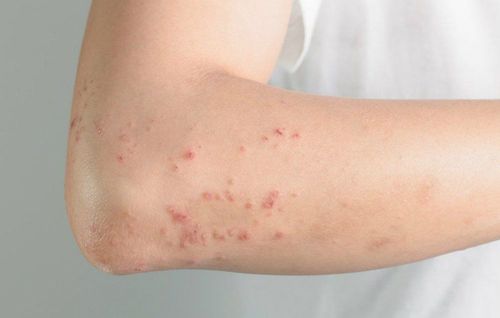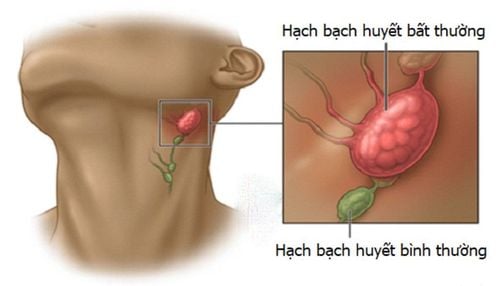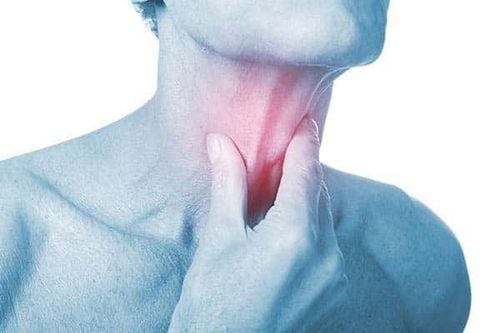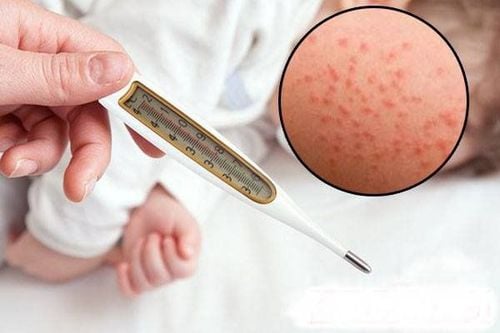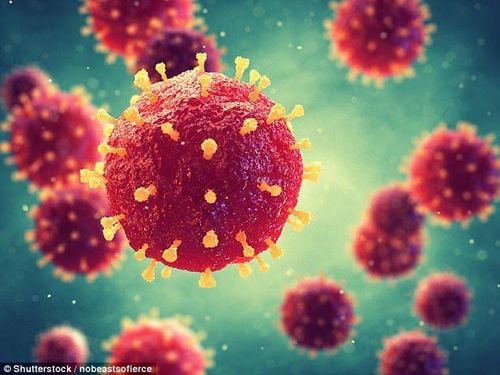This article was professionally consulted by Dr. Vu Quoc Anh, MSc, MD - Pediatrician - Pediatrics - Neonatology Department - Vinmec Da Nang International General Hospital.
According to reports from the Ministry of Health, the measles outbreak is exhibiting extremely complex dynamics and is showing a rapid increase. Measles is a highly contagious disease, and therefore, without timely preventative measures, it can easily escalate into an outbreak.
1. What is measles?
Measles is a highly contagious infectious disease caused by the Paramyxoviridae virus.
The disease commonly occurs during transitional weather, particularly in the winter and spring seasons.
It is transmitted through the air, which increases the potential for outbreaks, especially among individuals with compromised immune systems.
2. What should be done if infected with measles?

Individuals with weakened immune systems, poor resistance, and malnutrition are more susceptible to viral attacks. Therefore, these individuals are highly susceptible to contracting measles.
When nutritional status is inadequate, individuals affected by measles will experience more severe symptoms due to insufficient nutrient supply
These patients tend to experience nausea, loss of appetite, and deteriorating health, further aggravating malnutrition and worsening the disease.
When infected with measles, patients should:
• Ensure a well-balanced diet comprising all four essential food groups: vitamins, minerals, carbohydrates, proteins, and fats.
• Include a diverse range of food sources in the diet.
• For breastfeeding infants with measles, increase breastfeeding frequency, and mothers must also adequately nourish themselves to support their health and their child's nutrient absorption.
• In addition to ensuring adequate nutrition, patients must improve their lifestyle:
• Limit visits to crowded places to avoid disease transmission, and wear surgical masks when in contact with others.
• Maintain cleanliness in personal hygiene, but avoid excessive cleaning to reduce the risk of dermatitis, which could impair the recognition of skin infection signs.
• The sickroom should be clean and well-lit.
• Maintain adequate hydration, potentially with oral rehydration solutions, and also include fruit juices to ensure sufficient fluid and nutrient intake.
2.1 During the acute phase of measles:
• Patients must immediately intake vitamin A.
• For infants under 6 months: 50,000 units/day for 2 consecutive days.
• For children aged 6-12 months: 100,000 units/day for 2 consecutive days.
• For children and adults (not applicable for pregnant women): 200,000 units/day for 2 consecutive days.
For patients deficient in vitamin A, repeat the above doses after 4-6 weeks.
Vitamin A plays a crucial role in maintaining the integrity of epithelial cells; thus, low vitamin A levels result in a decreased immune response to measles, increasing susceptibility to infection. It is essential to supplement with vitamin A.
• Supplement with zinc-rich foods: Zinc deficiency weakens immune functions, facilitating viral invasion and infection. Zinc enhances immune response, promotes wound healing, and helps maintain the functions of other organs.
• Increase vitamin C intake: Vitamin C strengthens the immune system, aiding the body in combating viral and bacterial invasions, including those caused by the measles virus. It assists in the recovery process of patients.
2.2 In the event of complications from measles:
If complications such as bacterial infections, encephalitis, or respiratory distress occur, patients must seek immediate medical attention for evaluation and treatment.
Consistently maintain adequate nutrient intake. If oral intake is not feasible, intravenous fluids may be necessary to ensure sufficient nutrition.
2.3 Post-recovery:
Maintaining a nutritionally adequate diet is crucial even after recovery, as skin rashes gradually resolve. It is essential to increase food intake for at least two weeks to replenish nutrients lost during the illness.
3. What to avoid if infected with measles?

Patients should pay attention to avoiding the following types of food:
• Fried or excessively fatty foods, unsanitary foods, and hard-to-digest items: Due to illness, nutrient absorption is compromised. Consuming hard-to-digest or unsanitary foods elevates the risk of intestinal infections, worsening malnutrition and contributing to further weakness and dehydration.
• Avoid spicy and hot foods: Such foods can impede the healing of lesions.
• Avoid foods that trigger allergies: Allergenic foods may exacerbate the measles condition.
• Steer clear of fishy or sour foods: The digestive system of measles patients may become severely compromised with the intake of sour or fishy foods.
Individuals afflicted with measles must ensure adequate nutrition while refraining from harmful foods that could interfere with recovery and minimize the risk of unnecessary complications, ultimately facilitating a more rapid return to health.
4. Measles vaccination
The most effective method for preventing measles is through complete vaccination. When children reach 9 months of age, they should receive the measles vaccine, followed by the MMR (measles, mumps, rubella) vaccine at 15 months of age, with a booster administered between the ages of 4 to 6 years to ensure adequate protection against measles.
To arrange an appointment, please call HOTLINE or make your reservation directly HERE. You may also download the MyVinmec app to schedule appointments faster and manage your reservations more conveniently.
To arrange an appointment, please call HOTLINE or make your reservation directly HERE. You may also download the MyVinmec app to schedule appointments faster and manage your reservations more conveniently.

